Vegan parmesan doesn’t have to be difficult. Just a few ingredients and a whisk, and you’ll be topping pastas and making sauces in no time!
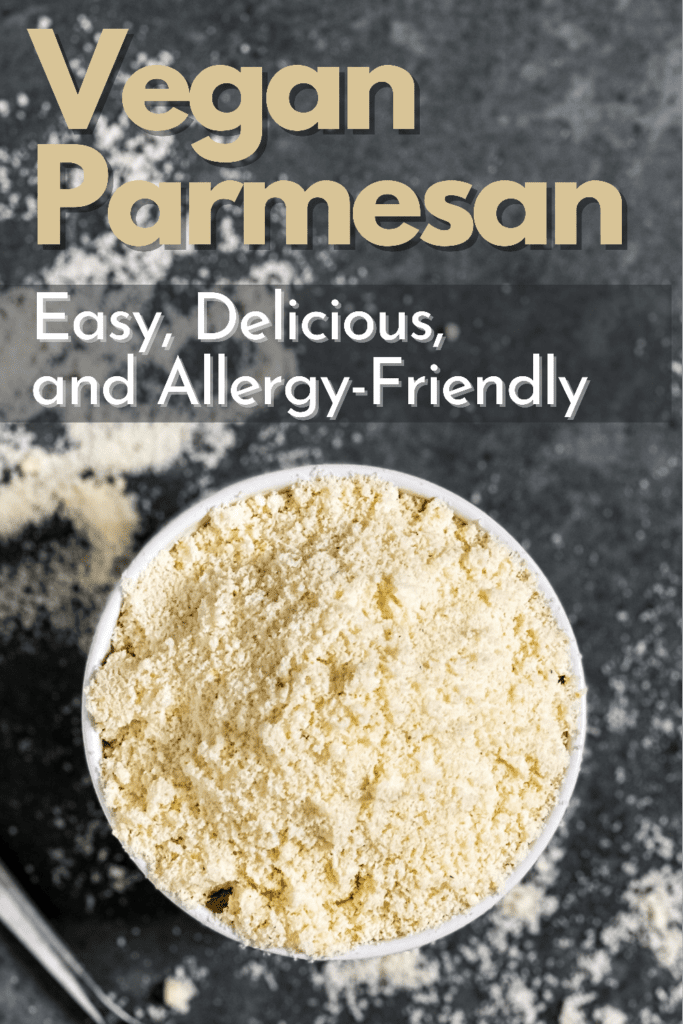
You might think you need a good quality food processor or blender to make vegan parmesan – but you don’t! With this recipe, all you need are some common pantry ingredients and a fork or whisk to blend them together.
The result is a nutty, sharp, salty cheesy mix to pour over all your pasta dishes, into soups, and even use to make a luscious vegan cream sauce (hello, alfredo!).
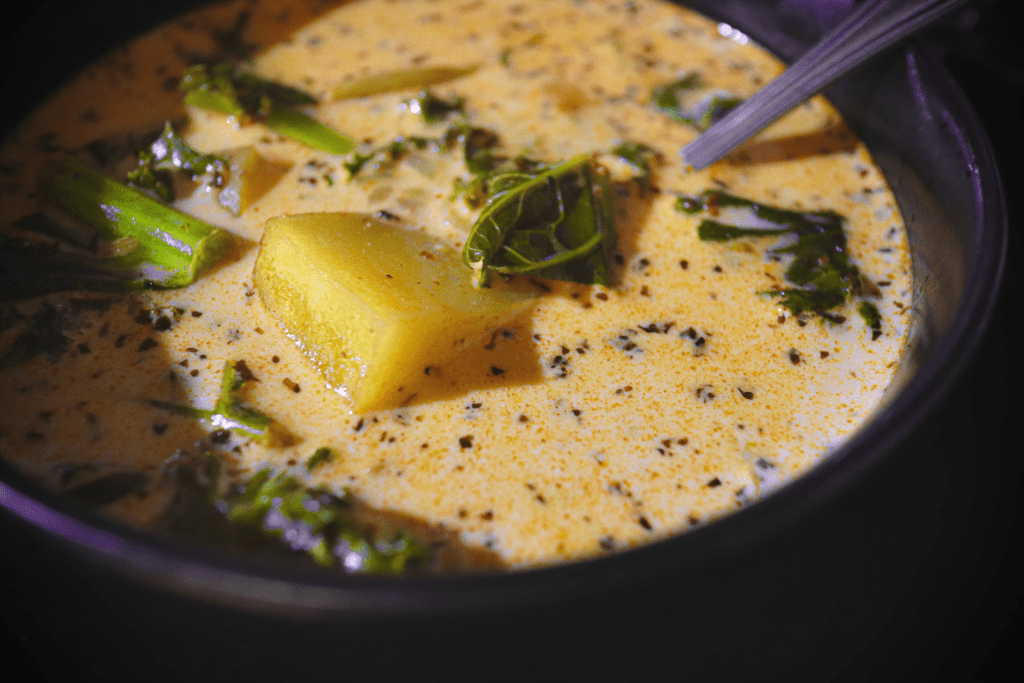
Table of Contents
- How can you call this parmesan if it’s dairy free?
- What does this vegan parmesan taste like?
- What ingredients can we use to emulate these flavors?
- What about nutritional yeast????
- Another parmesan component: Meltiness
- How do I make it?
- How do I store this vegan parmesan?
- How do I use my new vegan parmesan powder?
- Recipe Card
How can you call this parmesan if it’s dairy free?
Pretty easily! PAR-meh-jan. I mean, I guess that last syllable can be a little tricky (it’s kind of like the French “j” in “deja vu”, but with enough practice I’m sure you’ll be able to do it!). If you really can’t, then call it by its Italian name: “Parmigiano”. That’s pronounced par-mee-DJYA-no. A little easier and it sounds a lot more fancy!
Seriously though, this obviously isn’t authentic parmesan cheese. It doesn’t come from the Parma/Reggio Emilia area of Italy. It’s not made from cow’s milk. It hasn’t been aged 10 months or more. And I haven’t had it sent for chemical analysis of its water and cellulose contents. I can guarantee it has 0% milkfat, though! (So please don’t try to make this for sale and call it parmesan because bad times)

All that to say, duh – this isn’t really dairy cheese. It’s vegan. It’s made from plants. That’s in the title. It does however taste like parmesan cheese. It melts like parmesan cheese. It crisps and browns like parmesan cheese. And it makes me happy like parmesan cheese.
And calling it “vegan and dairy-free alternative to parmesan cheese that tastes and acts the same way as authentic Parmigiano Reggiano” is apparently frowned upon by Google. So vegan parmesan it is!
What does this vegan parmesan taste like?
Exactly like dairy parmesan? No, not exactly. I can’t really get the goat flavors to come through so well (keep reading to know what I’m talking about). It is enough like it that my five year old loves it instead of her usual Kraft, though!
But what does parmesan taste like? Figuring that out helped figure out how to make this recipe – so I’ll get down to the nitty gritty.

Scientists have actually identified 31 different components of parmesan’s taste and aroma, but for simplicity’s sake here, the flavor profiles that parm mostly consists of include:
- Umami – the “savory” flavor. It’s the utterly satisfying, earthy taste and sensation of “goodness this is good”. It comes mainly from glutamates, which is a type of amino acid.
Glutamates are found naturally in lots of foods (like parmesan, meat, and mushrooms) and we can also find it in MSG. - Nuttiness – most cheese connoisseurs agree that parmesan has lovely nutty notes, particularly at the beginning of the taste, and they generally call it almond-y.
- Butteriness – Parmesan has a very buttery overall taste to it. You know when it hits the sides of your tongue and kind of pleasantly lingers there? This is a combination of the cream in the milk used to make it and the lactic acid produced during fermentation.
- Sharpness/Tang – The “sharpness”, or tangy bite of parmesan comes from a variety of acids present in it. The main and most familiar one is lactic acid (as mentioned above).
Others include acetic (vinegar), butanoic (this one on its own smells like.. err… stomach contents), caproic – named such because it smells like goats (vanilla also has this), caprylic (also named after goats) which is found in coconut and palm oils, and capric (once again.. goats) acids. - Fruit/Chocolate – Yes, it’s fruity. Parmesan definitely has fruity/chocolatey notes. A lot of it comes from the acids listed above (especially the caproic and caprylic acids).
- Roasted Notes – Parmesan definitely has a roasted flavor to it. Like the flavor change between regular ole raw nuts and oven roasted nuts.
- Salt – Parmesan is high in sodium and so it has a very salty taste – which is part of why people love it so much!
What ingredients can we use to emulate these flavors?
Knowing (or at least reading) what we did above, we can work on building our vegan parmesan.
- Nut Flour – nut flour (especially roasted!) gives us nuttiness, roastiness, umami, some butteriness, and (depending on what flour you use) fruitiness.
My favorite is almond flour (also known as superfine almond meal) because it’s the easiest for me to get AND it gives us the “almond like flavor” the cheese experts taste in the dairy version.
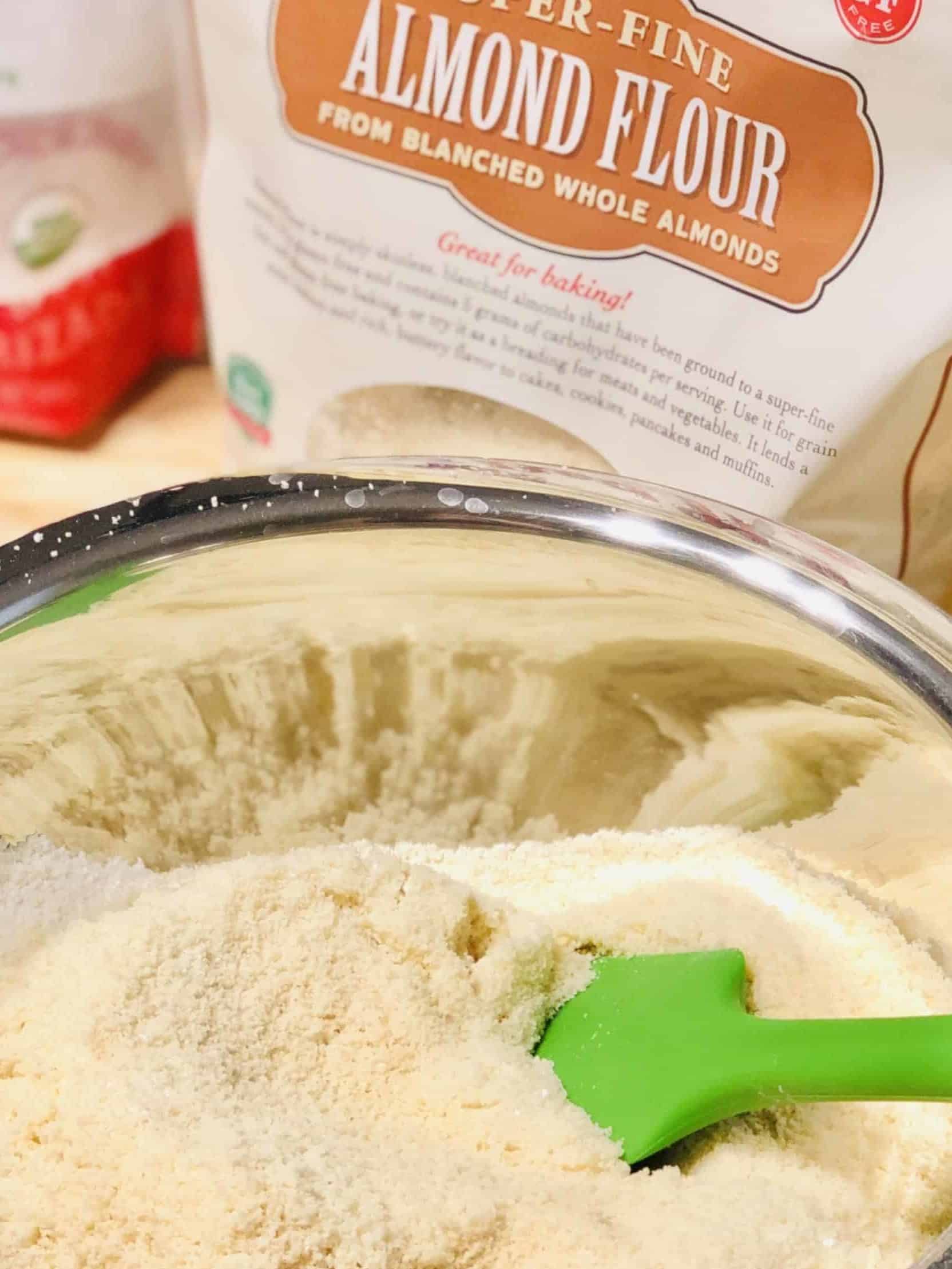
You can use sunflower or pumpkin seed flour or even hemp seeds if nuts are a no-go, or if all nuts and seeds are out try roasted soybean flour. Can’t do any of those? Toasted oat flour will also give you nutty goodness!
Check, check, check, check, check.
- Garlic and Onion – garlic and onion are full of compounds that are extraordinarily (yet pleasantly) pungent and sharp – kinda like the smell of goats! (see above). They also have a compound called methyl allyl trisulfide which is described as being creamy/buttery.
Check, check, and check.
- Lemon Salt (or lemon pepper if you can’t find lemon salt) – While I would love to use straight lactic or citric acid powder in this, I can’t find any locally. I try to only include easy to find and accessible ingredients in my recipes so that anyone can make them. So we are going with lemon here for its tanginess and fruitiness. Then the salt is.. salty.
Check, check, check.
- Vegan butter flavored popcorn salt or MSG – This gives us that umami that is the main flavor component of parmesan, as well as some saltiness. And if you can get the popcorn salt, I highly recommend it! It adds a very dairy-esque flavor that’s hard to match otherwise! Use plain salt if you don’t have either.
Check and check.

*******Don’t @ me about MSG being dangerous. That’s racist anti-Asian propaganda. You’ve been eating MSG your whole life if you’ve ever had ACTUAL PARMESAN, mushrooms, soy sauce, or heaven forbid, tomatoes. *******
What about nutritional yeast????
Yeah. That’s missing. I hate the stuff. GROSS. “It tastes like cheese!” they all tell me. LIES. It tastes like licking the floorboards of an old, dusty attic. Ew, David. (you can add it if you want though, especially if you want umami and don’t want to use MSG)
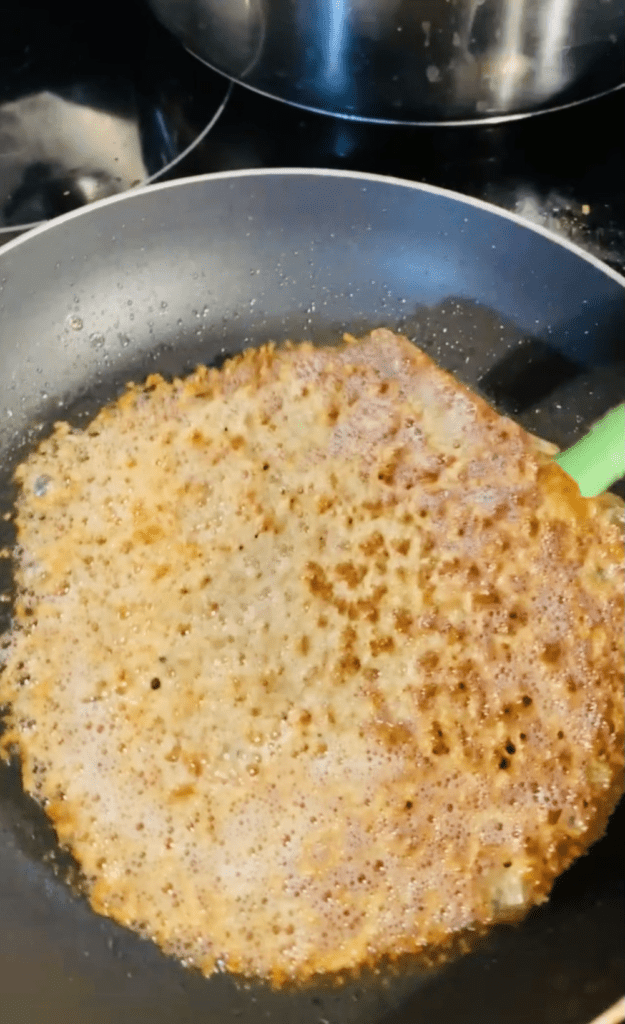
Another parmesan component: Meltiness
Dairy parmesan cheese melts, browns, and crisps. While I can’t perform a miracle to make a powdered vegan cheese substitute melt with heat, we CAN make it melt if we add a little liquid to it (or it to a little liquid). To do this, we are going to add tapioca starch (or arrowroot) to the mix.
Just like in my cheese sauce base recipe, the tapioca will let this get melty and stretchy if we heat it up with some liquid to activate the starches.
Tapioca and arrowroot will also crisp up and brown just like dairy parm does when you cook it.
How do I make it?
You put all of the ingredients together and stir them up! Really, it’s that easy.
All of our ingredients are powders, so we just mix them until well blended.
How do I store this vegan parmesan?
I like to keep mine in a glass mason jar with a perforated top I stole from an old spice jar that fits it perfectly. The top of a store-bought grated parmesan container (like Kraft) also fits perfectly on most mason jars in case you can safely pilfer one from somewhere.
This vegan parmesan powder is also made entirely of shelf-stable ingredients, so as long as you store it in an air tight container, it should be fine in a cabinet or pantry at room temp.
If you don’t use it very often and won’t use it up for a while, you may want to keep it in the fridge to keep the flour from going rancid.
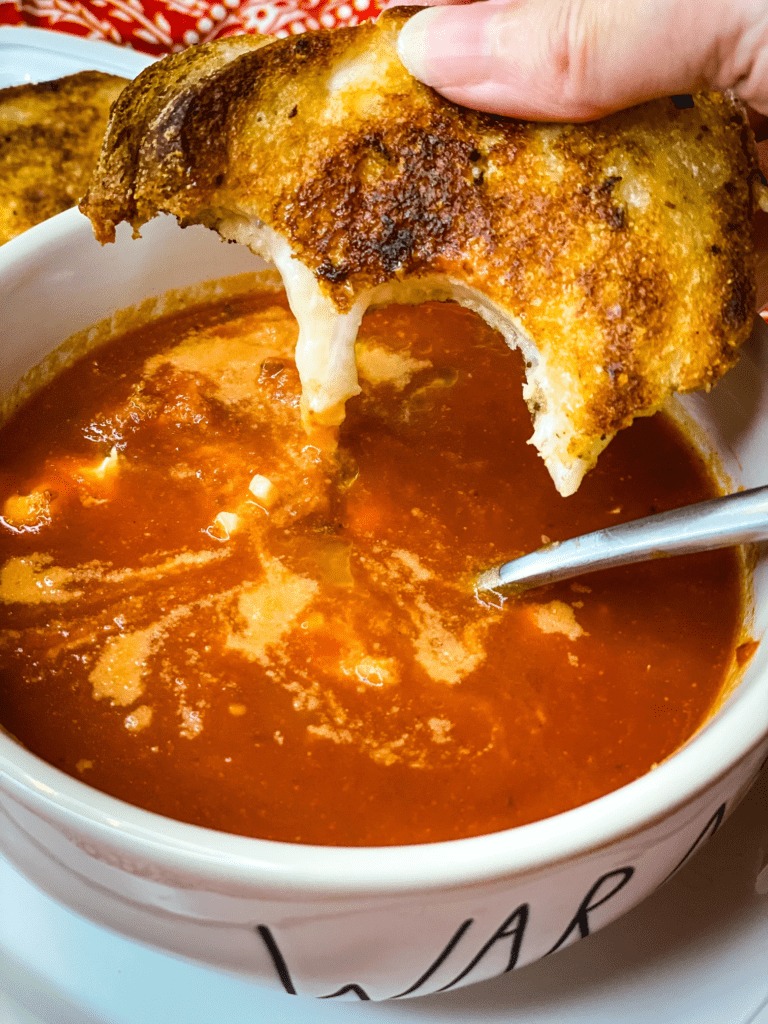
How do I use my new vegan parmesan powder?
Use it in all the same ways you would use the dairy version!
- Sprinkle on top of your favorite pasta dishes and soups
- Add it to garlic bread before baking
- Use it to coat things before frying or baking
- Thicken sauces and soups
- Mix with white rice and butter for an over-the-top experience
- Toss it with some popcorn for extra umami goodness
Recipe:
Vegan Parmesan - Easy & Allergy-Friendly
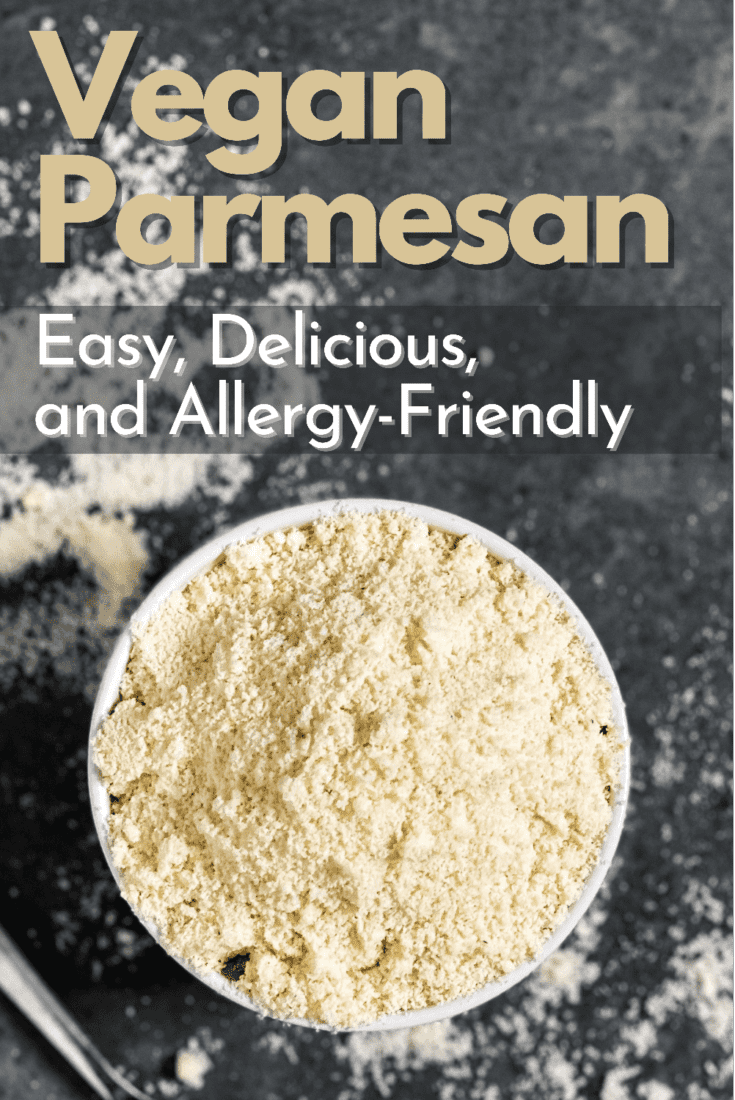
Vegan parmesan doesn’t have to be difficult. Just a few ingredients and a whisk, and you’ll be topping pastas and making sauces in no time!
Ingredients
- 1.5 cups (180g) nut flour (see post for alternatives)
- 1/4 cup (30g) tapioca or arrowroot starch
- 1/8 tsp garlic powder
- 1/2 tsp onion powder
- 1/2 tsp lemon salt or lemon pepper
- 1/2 tsp (or to taste) vegan butter popcorn salt OR plain salt OR 1/4 tsp each of MSG and salt
Instructions
- Whisk all of the ingredients together.
- Store in an airtight container in your cabinet or pantry, or in the fridge.
Notes
For ingredient variations, please see the blog post.
For even more authentic flavor, try toasting the flour before mixing everything together!
Low carb or keto? Leave out the starch and forgo the melting/browning factor. It'll still be just as delicious!
Recommended Products
As an Amazon Associate and member of other affiliate programs, I earn from qualifying purchases.

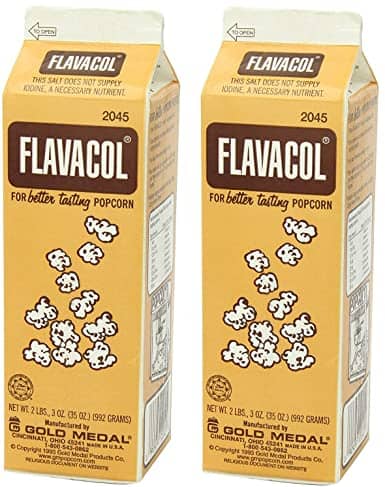
Ohhhhh you speak to my heart here! I just can’t stand the taste (or smell) of nutritional yeast. I read and saved this recipe the other day and today I bought tapioca starch. I’m excited to make vegan parmesan. Thank you!!!
Nooch haters unite!! I hope you love the recipe! 💜